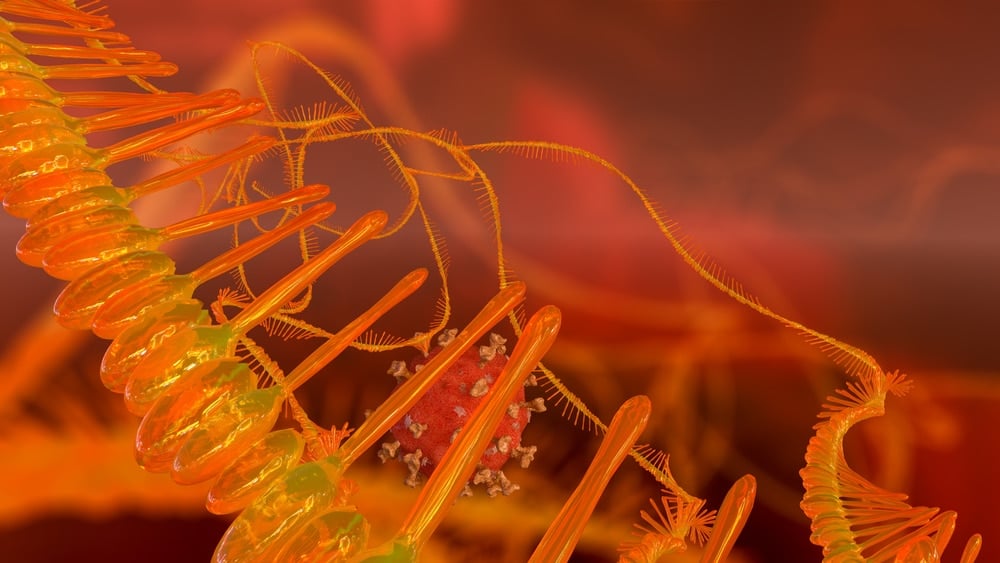A novel branched lipid that is highly stable in storage and is highly efficient in delivering mRNA to cells has been developed.
Messenger RNA (mRNA) is a biological molecule that transfers the information coded by genes in the nucleus to the cytoplasm for protein synthesis by ribosomes. mRNA sequences can be designed to encode specific proteins; the most well-known example of this are the mRNA vaccines developed for Covid-19.
mRNA molecules are large and chemically unstable, so a vector must be utilized to deliver mRNA to the cells. One of the most advanced technologies for the delivery of mRNA is lipid nanoparticles (LNPs), which are composed of ionizable lipids, cholesterol, helper lipids and polyethylene glycol.
A team of researchers led by Yusuke Sato and Hideyoshi Harashima at the Faculty of Pharmaceutical Sciences, Hokkaido University, in Japan, and by Kazuki Hashiba at the Nitto Denko Corporation, have developed a novel branched ionizable lipid which, when included in LNPs, greatly increases the efficiency of mRNA delivery. Their results were published in the journal Small Science.
Current issues
Previous work has shown that ionizable lipids with branching tails increases the efficiency of mRNA delivery by LNPs. However, two major issues have prevented a systematic analysis of the effect of branching ionizable lipids. First, tail branching leads to an enormous diversity of chemicals; second, the number of commercially available branching ionizable lipids is limited.
To overcome these hurdles, the researchers generated a systematic lipid library of branching ionizable lipids, and limited this library to a specific subset of branching lipids which could be described with just two parameters: total carbon number and symmetry. They then tested the 32 lipids in this library for their effect on the stability of LNPs containing mRNA (LNP-RNA).
Design of novel lipids
The team discovered that LNP-RNAs containing highly symmetric branched lipids exhibited greater microviscosity, and the higher microviscosity was positively correlated with increased stability of LNP-RNAs in storage. Highly symmetric branched lipids in LNP-RNAs are also positively correlated with protein expression in the liver and spleen in mice. They determined that the length of the branched chain affects organ selectivity.
The most stable storage and most efficient delivery of the mRNA was achieved by the branching lipid CL4F 8-6. The authors demonstrated that this particular lipid could be used in LNPs designed for gene editing, achieving a 77% suppression of the target gene in mice with just one dose of LNPs.
This study revealed that branched lipids with a high level of symmetry contributed to optimal LNP properties for efficient intracellular delivery and stable formulations.
Future work will focus on developing expanded lipid libraries to understand the properties of other branched lipids, and may lead to design of novel lipids.
Partnering 2030: The Biotech Perspective 2023






